Hosokawa, Toshio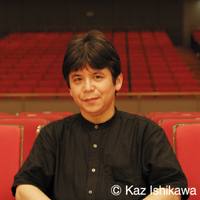
Toshio Hosokawa was born in 1955. Following initial studies in piano and composition in Tokyo, he came to Berlin in 1976 to study composition with Isang Yun at the Universität der Künste. He continued his studies with Klaus Huber at the Hochschule für Musik in Freiburg from 1983 to 1986. In 1980, he participated for the first time in the Darmstädter Ferienkurse für Neue Musik where some of his compositions were performed. From 1989 to 1998, the composer was the artistic director and organiser of the annual Akiyoshidai International Contemporary Music Seminar and Festival in Yamagushi which he had co-founded. Since 2001, he has additionally been the artistic director of the Japanese Takefu International Music Festival in Fukuj. He was appointed permanent guest professor at the Tokyo College of Music in 2004. Hosokawa lives in Nagano, Japan and in Mainz, Germany.
Hosokawa’s compositions include orchestral works, solo concertos, chamber music and film music alongside works for traditional Japanese instruments.The orchestral work Circulating Ocean was composed in 2005 as a commission for the Salzburg Festival. Valery Gergiev conducted the world premiere in Salzburg.Woven Dreams is an award-winning work of Roche Commissions, which was premiered by the Cleveland Orchestra at the Lucerne Festival in 2010 and won a BASCA British Composer Award in 2013. The Horn Concerto – Moment of Blossoming was written for the horn virtuoso Stefan Dohr, who premiered it with the Berliner Philharmoniker under Sir Simon Rattle’s direction in 2011.
In the oratorio Voiceless voice in Hiroshima (1989/2000-01) for soloists, narrator, choir, accompanying tape (playback tape) (ad lib.) and orchestra, Hosokawa takes as his subject the devastating atomic bomb explosion at the end of the Second World War in the city of his birth. The composer approaches the unutterable through his extreme musical language – the brutal tonal world of brass and percussion and the colourful chordal landscape of the choir. A series of compositions for varying instrumentations is dedicated to the victims of Japan’s 2011 tsunami and subsequent nuclear disaster. Meditation for orchestra evolves from a silent Meditation to an elegy while the brass and percussion instruments warn of the approaching tsunami in the background.
His first opera Vision of Lear was premiered at the Münchener Biennale in 1998. Hosokawa succeeds in bridging East and West in his Shakespeare adaptation: modern European musical theatre meets the Japanese traditions of Nō-Theatre on the basis of the Renaissance play. Hosokawa’s second opera, Hanjo, was first staged at the Festival in Aix-en-Provence in 2004, followed by further performances in Brussels, Hamburg, Lisbon, Bielefeld, Lyon, Tokyo and Milan. Woven Dreams is an award-winning work of Roche Commissions, which was premiered by the Cleveland Orchestra at the Lucerne Festival in 2010. His third opera Matsukaze premiered at La Monnaie Brussels in 2011 (Sasha Waltz, staging). Hosokawa also wrote the opera Stilles Meer in response to these terrible events. It was commissioned by Hamburg State Opera and saw its premiere conducted by Kent Nagano in January 2016. Many works were premiered under the baton of the world’s leading conductors: Kazushi Ono, Kent Nagano, Sir Simon Rattle, and Robin Ticciati, among others. Many of the works mentioned above have become an important part of the contemporary repertoire.
Hosokawa has received numerous awards and prizes: Among them the first prize in the composition competition for the 100th anniversary of the Berliner Philharmoniker (1982), the Arion Music Prize (1984), the Kyoto Music Prize (1988) and the Rheingau Music Prize (1998). From 1998 to 2007 he was Composer in Residence at the Tokyo Symphony Orchestra. Hosokawa was appointed member of the Akademie der Künste in Berlin in 2001. In 2006/07 and 2008/09, he undertook a period of research at the Institute for Advanced Study [Wissenschaftskolleg] in Berlin. He was Composer in Residence at the Biennale di Venezia (1995, 2001), the Tokyo Symphony Orchestra (1998-2007), the International Music Festival of Lucerne (2000), musica viva in Munich (2001), Musica nova Helsinki (2003), Warsaw Autumn (2005, 2007) and others. He was Artistic Director of the Suntory Hall International Program for Music Composition from 2012-2015.
Concert Producer
Itoh, Kei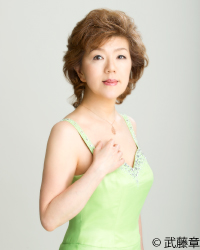
Kei Itoh studied piano with Kazuko Ariga. After she has graduated Toho highschool, she continued studying at Salzburg Mozartium Musikhochschule and Musikhochschule Hannover under Hans Leygraf. Itoh won several international competitions such as J.S.Bach International Music Competition and Long-Thibaud-Crespin Competition. In 1983 she won as first Japanese pianist the First Prize in the piano section of the 32th München International Music Festival, and played with Bayern Staatsorchestra and Wolfgang Sawallisch. In Japan, she has performed with NHK Symphonic Orchestra and other important orchestras in symphonic concerts, chamber music concerts and radio programms.
Kei Itoh has released several CDs such as “Schumaniana vol 1-13 (Shumann’s complete piano works)”, piano concertos of Brahms and Chopin’s etudes. Her latest CD “Schubert: piano works vol.6” won the Record Academy Prize 2015 (instrumental section) and the Music Festival Prize by the Japan Culture Agency. She participated Saito Memorial Festival Matsumoto, Takefu Music Festival, Karuizawa Music Festival and other music festivals in Japan. She teaches piano as professor of the Tokyo University of Arts and the Toho University.
Maki Ota (Soprano)
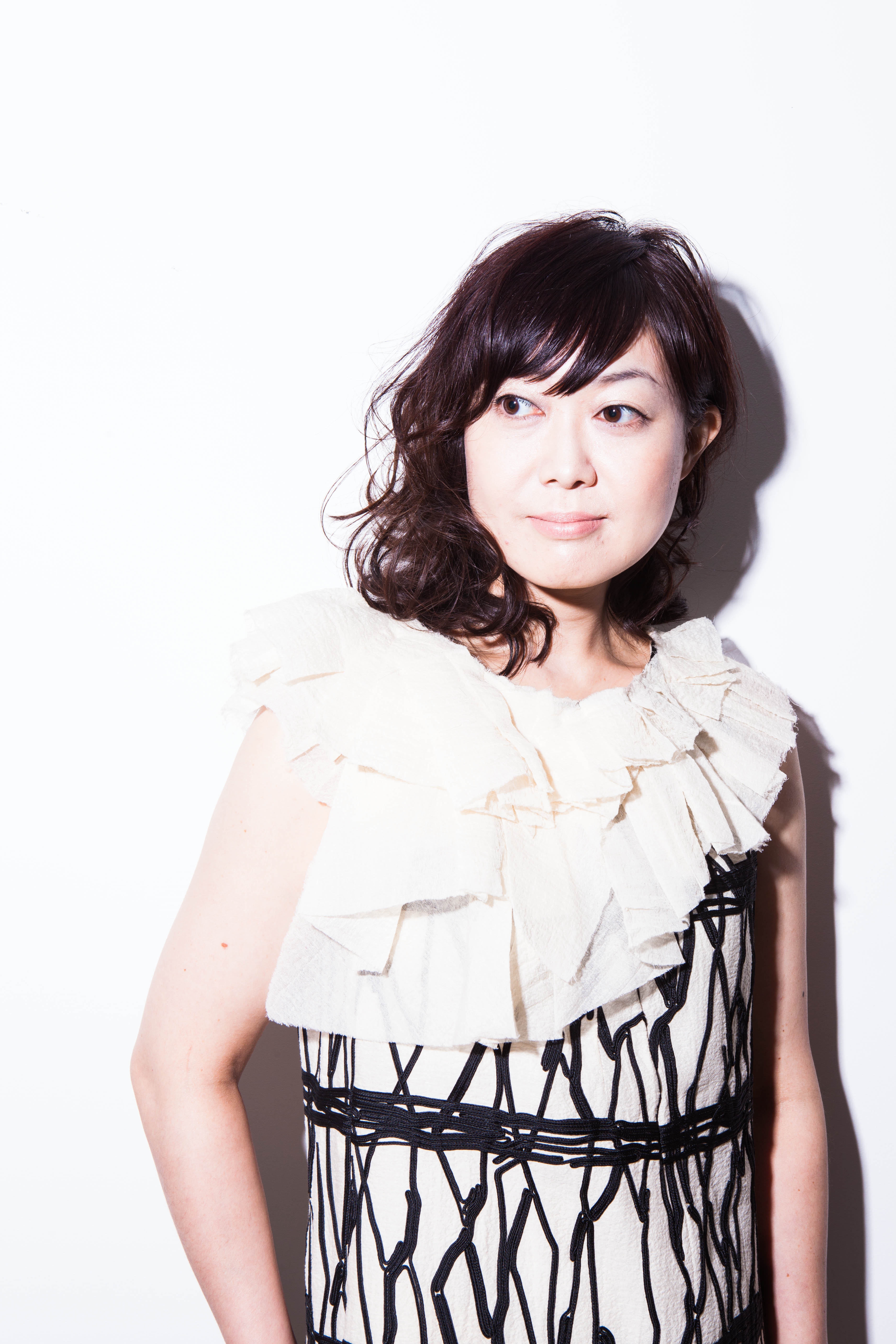
Maki Ota comes from Osaka. She studied vocal music at the Doshisha Women’s College of Liberal Arts. She also finished the master course of vocal music in the graduate school of the Osaka College of Music. She studied vocal music of Giacinto Scelsi by Michiko Hirayama in Rome. She learns German vocal music by Axel Bauni in Berlin. Her performance was broadcasted by WDR, CEMAT and NHK-FM.
Maki Ota participated several festivals such as the Scelsi Festival in Basel, the Nuova Consonanza Festival in Rome, the Takefu International Music Festival, the Summer Festival of the Suntory Art Foundation and so on. She performs contemporary music positively. She has recently played the entire 20 Canti del Capricorno by Scelsi at the Sound Live Tokyo Festival in the October 2015.
Tadashi Tajima
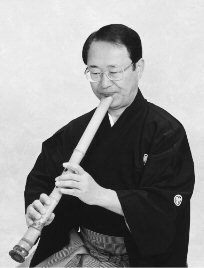
Tadashi Tajima is considered to be one of the representative Japanese shakuhachi players on the world-wide musical scene. He is the founder and the head of Jikisho-ryu of shakuhachi, and teaches at his schools in Tokyo and Osaka. He holds two important recitals in Tokyo and Osaka every year (total 70 times). Beside these recitals he holds concerts of shakuhachi-honkyoku (shakuhachi pieces without the other instruments) in more than 400 places throughout Japan. He also played in 19 foreign countries and is invited to many famous international music festivals such as Bach Fest and Salzburg Festival.
Tadashi Tajima received the First Prize by the competition of traditional Japanese instruments, the Grand Prize and the German Ambassador Prize in the Pan-Musik-Festival in 1974. He was awarded the Art Festival Prize by the Agency for Cultural Affairs in 1990 and 2007. He was also chosen as the Rémy Martin Prize and the Ongaku-no-Tomo Prize. In addition he received the Encouragement Prize of Osaka-Fumin Theater.
Tadashi Tajima published several books such as “Shakuhachi-nyumon-kyosoku-bon (Shakuhachi Guide Manual)” and “Ichion-ni-kokoro-wo-komete (Devotion to a single tone)”. His CD of shakuhachi-honkyoku is highly valued in Germany.
Tadashi Tajima has collaborated with other artists of different categories. He is free from the common preoccupation about shakuhachi. His performance shows not only the great potential of expression of this instrument but also its capacity of the response to various musical situations. He succeeded all of these projects thus received a high reputation.
Tadashi Tajima premiered “Voyage X – Nozarashi” of Toshio Hosokawa at the St. Thomas Church in Leipzig during the world-wide famous Bach Fest.
Ayako Tahara (Viola)
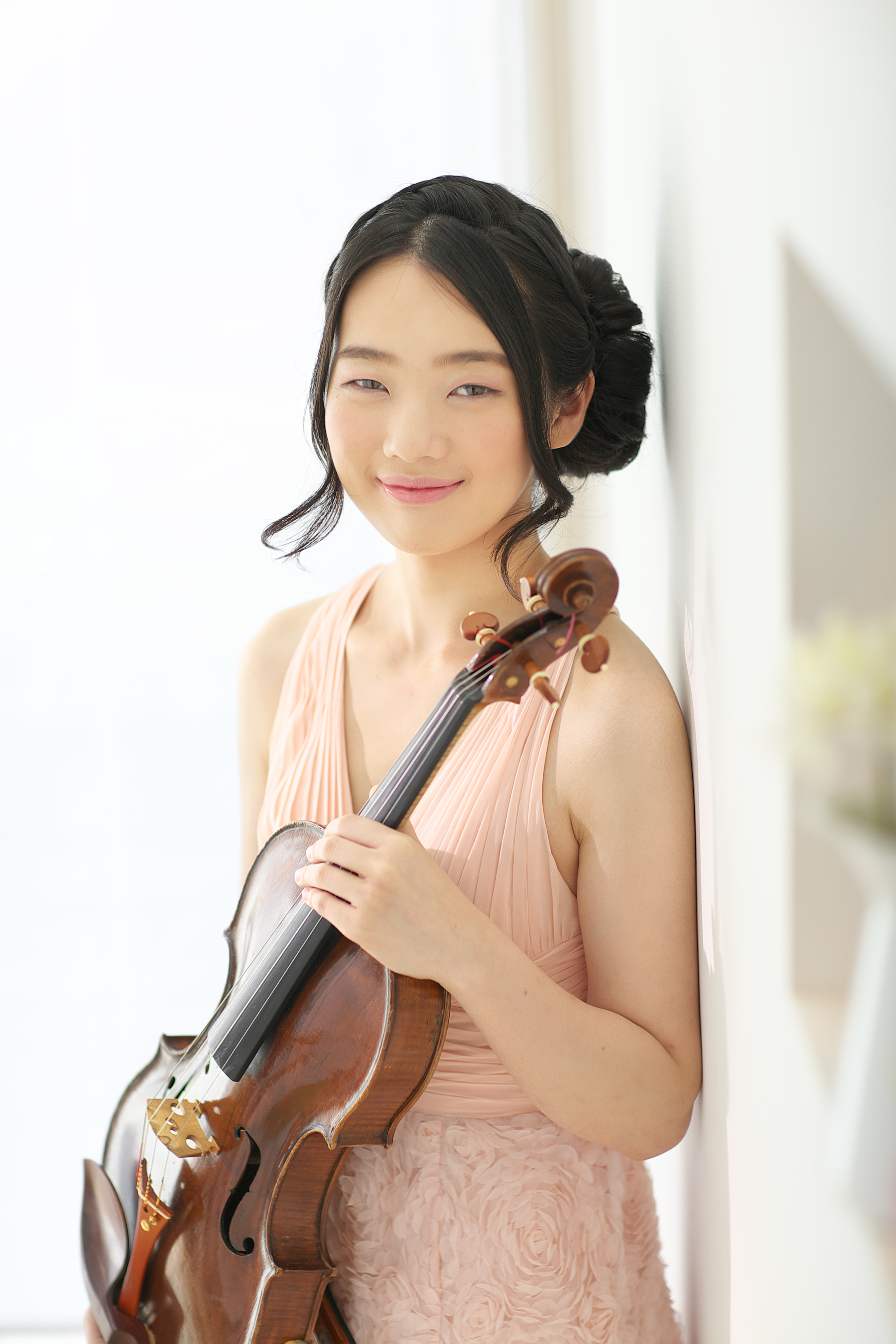 Ayako Tahara comes from Kanagawa. She studied Viola in the music course at the Toho Girls’ Junior High School and belongs to the third year of the Toho Gakuen School of Music. Her current teachers are Nobuo Okada and Hamao Fujiwara.
Ayako Tahara comes from Kanagawa. She studied Viola in the music course at the Toho Girls’ Junior High School and belongs to the third year of the Toho Gakuen School of Music. Her current teachers are Nobuo Okada and Hamao Fujiwara.
Ayako Tahara was a student of several scholarships such as the Munetsugu Angel Foundation, the Japan Federation of Musicians and the Rohm Music Foundation. She received the First Prize and the Audience Prize by the string section of the 11th Tokyo Music Competition. She also won by the 9th Romanian International Music Competition the First Prize of the string section the Best Prize of all sections, the Prize of the Romanian Radio Station.
Ayako Tahara took part in several concerts such as the Takefu International Music Festival and the Miyazaki International Music Festival, and played with the Yomiuri Nippon Symphony Orchestra, Tokyo Symphony Orchestra, Tokyo Philharmonic Orchestra. Her performance was broadcasted by NHK FM “Recital Nova” and NHK BS-Premium “Classic Club”. She participated concerts of contemporary music.
Yuya Tsuda (Pianist)
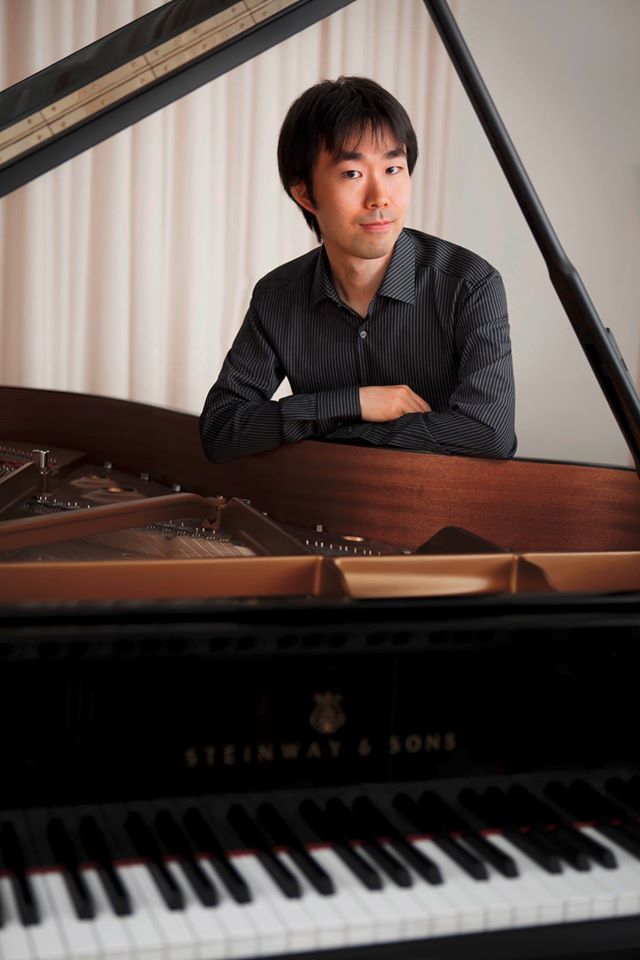 Yuya Tsuda studied at the Tokyo University of the Arts and its graduate school. He has also studied at the Berlin University of the Arts between 2007 and 2011. He has the German national license of performer. He learned piano by Pascal Dovoyon, Gabriel Tacchino, Miyoko Goldberg=Yamane, Hiroshi Kadono and Ruriko Shibuya.
Yuya Tsuda studied at the Tokyo University of the Arts and its graduate school. He has also studied at the Berlin University of the Arts between 2007 and 2011. He has the German national license of performer. He learned piano by Pascal Dovoyon, Gabriel Tacchino, Miyoko Goldberg=Yamane, Hiroshi Kadono and Ruriko Shibuya.
Yuya Tsuda received the First Prize, the Audience Prize and the Prize of French Ambassador at the third Sendai International Music Competition. He also received the Special Prize at the Munich International Competition 2011.
As piano soloist Yuya Tsuda played with the Berlin Philharmonic Orchestra, the German Chamber Orchestra and many Japanese Orchestras. He played together with famous string players, such as Gerard Poulet, Yuzuko Horigome, Teiko Maehashi, Nobuko Yamazaki and Jens Peter Mainz.
Yuya Tsuda organized several solo recitals in Tokyo and other cities and received positive recensions. He also performs as member of chamber music ensembles positively. The Duo with Saeka Matsuyama released 4 CDs. He also forms the Piano Trio “Accord” with Kei Shirai and Taiki Kadowaki. In addition, his solo album was released by Fontec in the August 2015.
Since spring 2015 he teaches at the Tokyo University of the Arts.
Yoshie Ueno
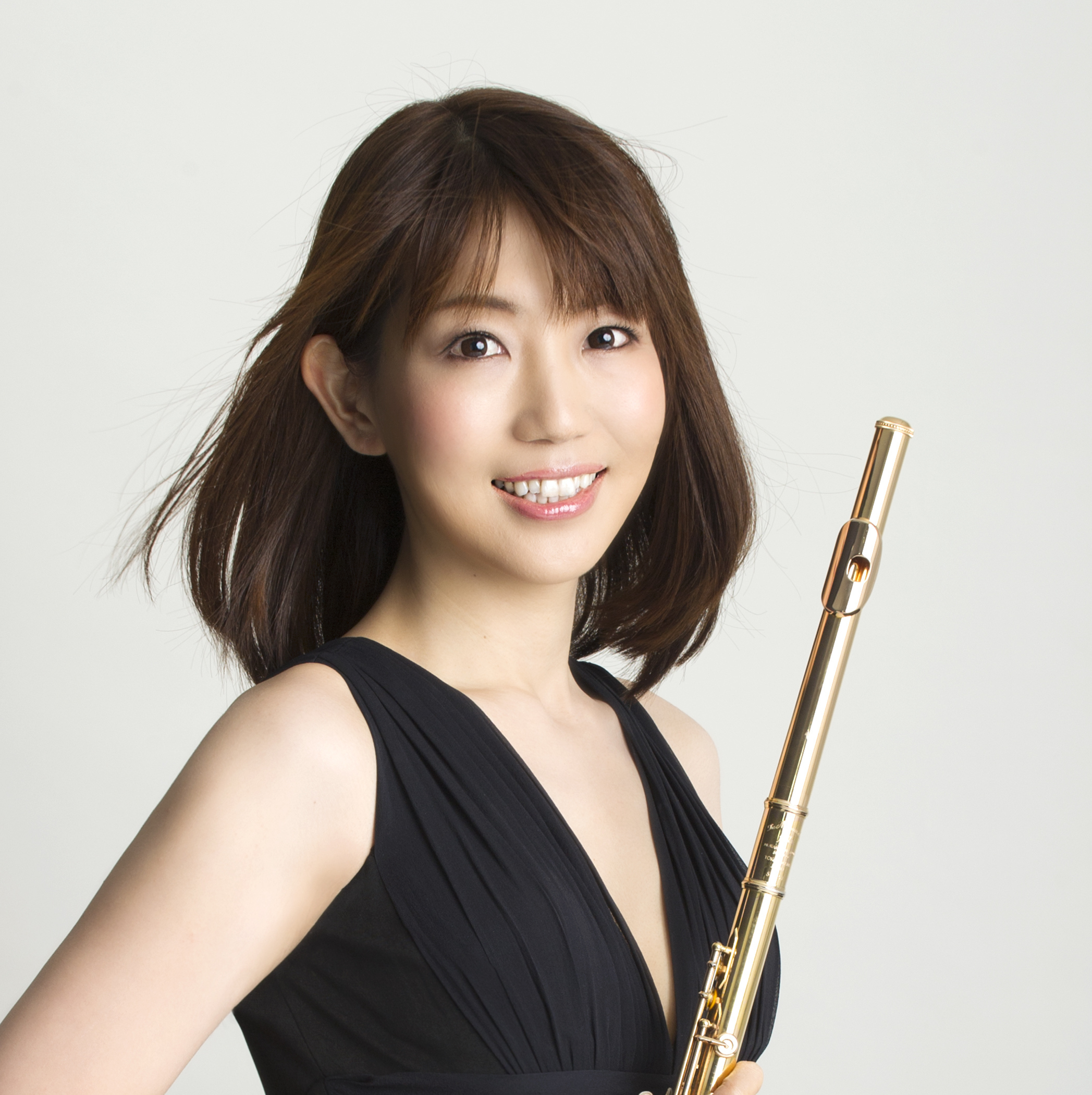 Yoshie Ueno studied at the Tokyo University oft he Arts and graduted as the top student. She has also the master degree of the same university. She received the First Prize and other prizes at the 76 the Japan Music Competition and also won the First Prize at the 2nd Tokyo Music Competition. At the 15th Japan Wind Blass Competition the First Prize, the Audience Prize, the Governor Prize of Hyogo prefecture and the Asahi Shinbun Prize.
Yoshie Ueno studied at the Tokyo University oft he Arts and graduted as the top student. She has also the master degree of the same university. She received the First Prize and other prizes at the 76 the Japan Music Competition and also won the First Prize at the 2nd Tokyo Music Competition. At the 15th Japan Wind Blass Competition the First Prize, the Audience Prize, the Governor Prize of Hyogo prefecture and the Asahi Shinbun Prize.
Yoshie Ueno has performed as soloist with many famous orchestras and ensembles such as the Yomiuri Nippon Symphony Orchestra, the Tokyo Metropolitan Symphony Orchestra, the Tokyo Symphony Orchestra, the Nagoya Philharmonic Orchestra, the Kyoto City Symphony Orchestra, the Kansai Philharmonic Orchestra, the Central Aichi Symphony Orchestra, the Czech Chamber Orchestra, the Czech Philharmonic Sextet, the Amarcord Quartet Berlin.
Yoshie Ueno released 5 Solo CDs by the Octavia Record which received good reviews in the Record Geijutsu. She teaches at the Muramatsu Lesson Center
Gen Yokosaka
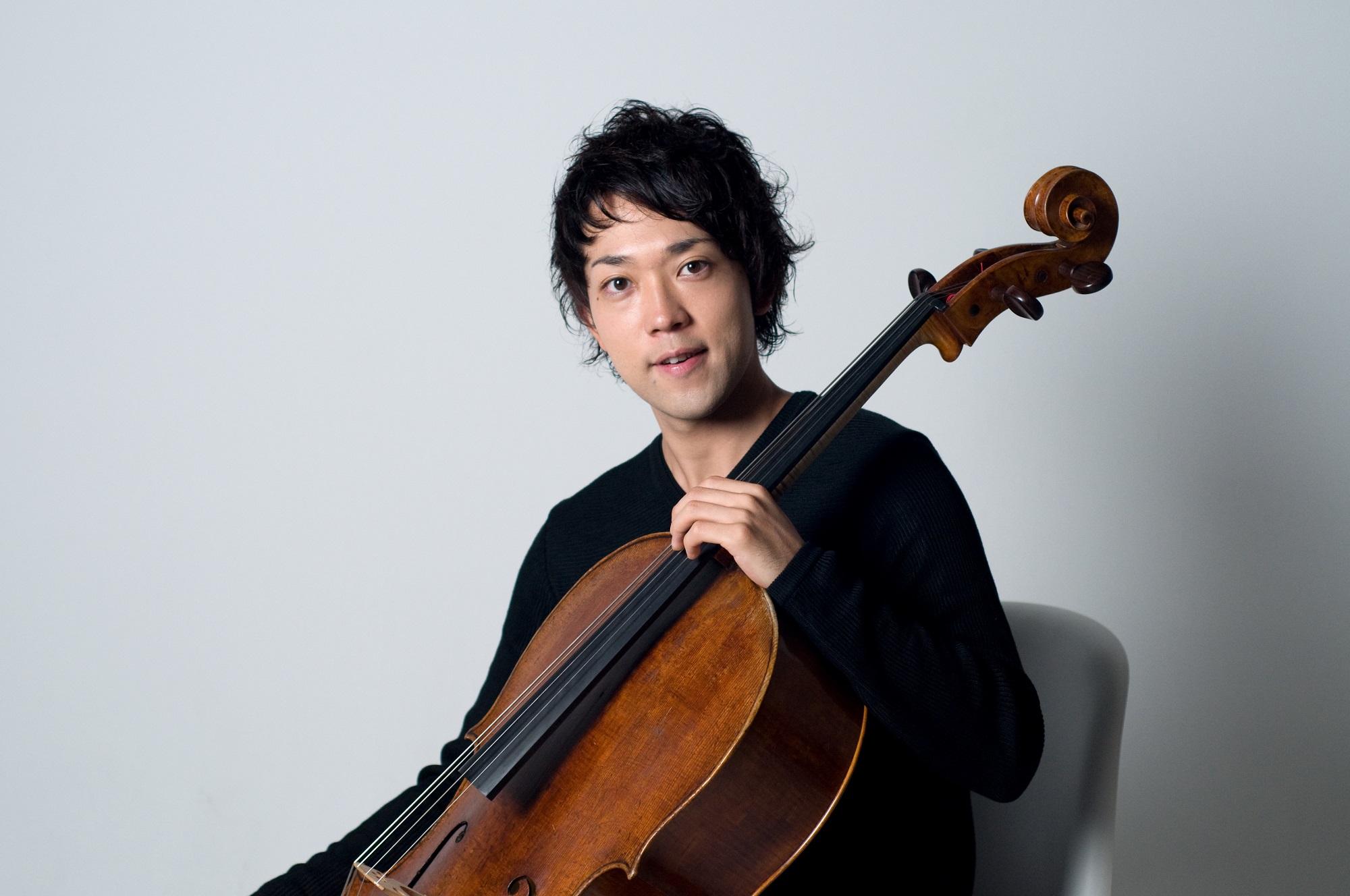
Gen Yokosaka graduated the soloist diploma course of the Toho High School, and studied at the State University of Music and the Performing Arts Stuttgart and the State University of Music Freiburg. He won the Viva Hall Cello Competition as the youngest cellist when he was 15 years old. He also received the Idemitsu Music Prize and the Saito Hideo Memorial Foundation Prize. He got the Second Prize at the Munich International Music Competition and the Hotel Okura Music Prize in 2010.
As soloist Gen Yokosaka played with important orchestras in Japan and the world. He played the cello concerto of San=Saens with the Tokyo Symphony Orchestra when he was 13 years old. He took a part in several music festivals such as the La Folle Journée au Japon, the Tokyo Spring Music Festival, the Miyazaki International Music Festival and the Takefu International Music Festival.
Gen Yokosaka learned cello by Katsuro Washio, Hakuro Mori and Jean-Ghuhen Queyras. He also participated master courses of Davidas Geringas and Jian Wang. He is interested in contemporary music too since he participated the Luzern Festival Academy conducted by Pierre Boulez. He uses a Pietro Giacomo Rogeri cello (1710) which is owned by the Suntory Holdings Co., Ltd.
Yumi Saiki
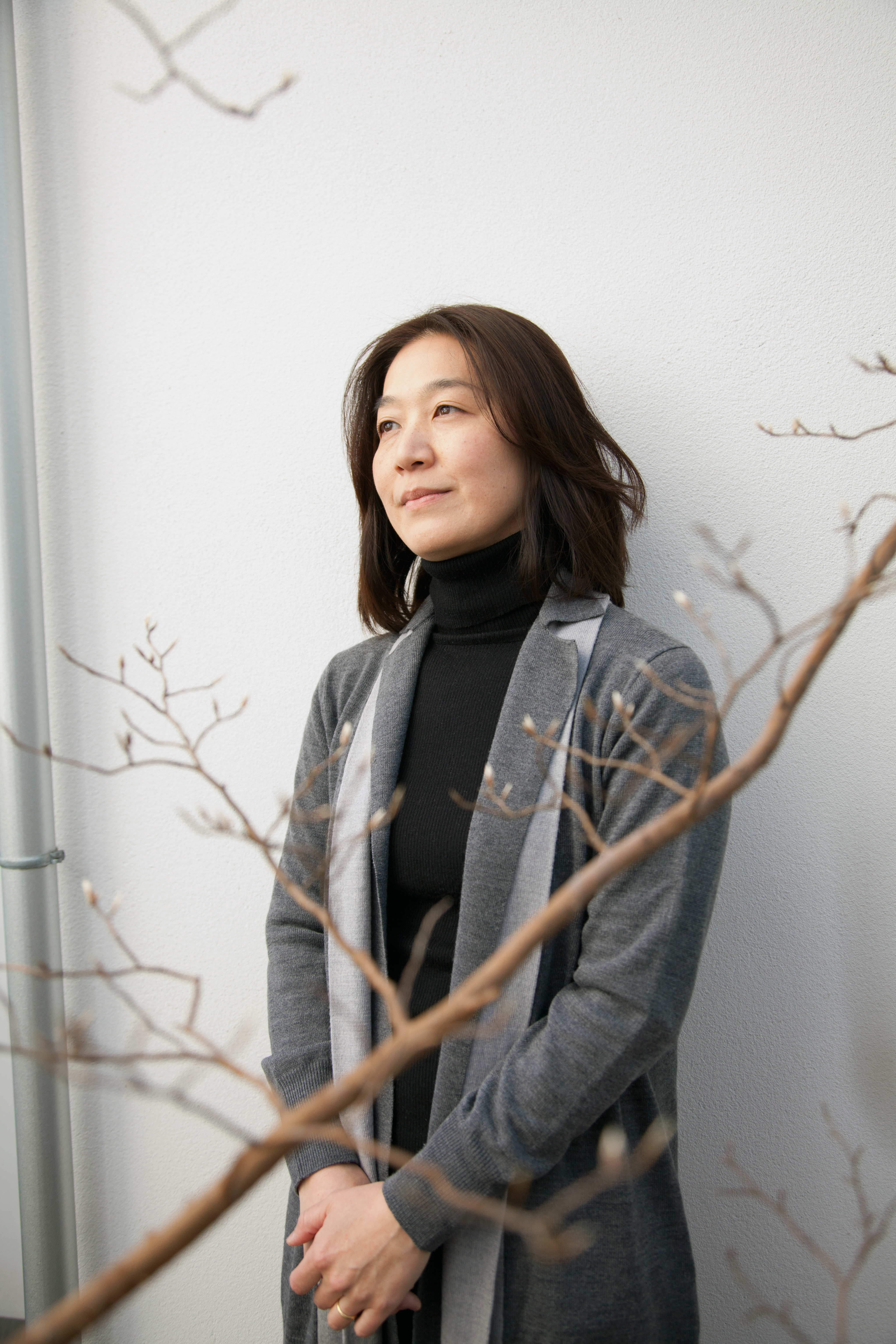
Yumi Saiki studied at the Aichi Prefectual University of Fine Arts and Music, the École Normale de Musique de Paris and the Concervatoire de Paris. She learned composition by Paul mefano, Yoshihisa Taira, Satoshi Kaneda and Hiroshi Hoshina. She received several prizes such as the Akutagawa Composition Prize. Yumi Saiki is a member of the Japan Federation of Composers Inc., the Japan Society for Contemporary Music and the Ensemble Contemporary α. She teaches at the Kunitachi College of Music.
Yumi Saiki received commissions from Music Tomorrow, Music from Japan, the Suntory Foundation, the Yomiuri Nippon Symphonic Orchestra, the Nagoya Philharmonic Orchestra, the Tokyo Sinfonietta. Her works were played by the HNK Symphonic Orchestra and other important orchestras and musicians in Japan and the world. Her compositions were performed not only at several music festivals in Caen, Saarbrücken, Darmstadt, Takefu, New York, Yogyakarta, Daegu and Gaudeamus, but also at concerts and radio stations in Asia, Europe and Americas.
Yumi Saiki has recently organized a portrait concert of her chamber music in 2014 and released two CDs. Her newest piece is “Die Mütter”, which was commissioned by the Musa Kawasaki Symphonic Hall had the world premiere in 2016.
Asako Yamamoto(Horn)
Asako Yamamoto graduated from Kyoto Municipal Horikawa High School and Kyoto city university or arts as she was given the Kyoto Mayor’s Prize.
Asako Yamamoto played together with Eiji Oue and Osaka Philharmonic Orchestra at a concert for young people. Asako took part in Opera project Ⅷ in Seiji Ozawa Music Academy and Opera for children in 2015. As a soloist, she performed in Music a la carte at Kyoto Concert Hall under Yasuko Usumi. In 2009, Asako got the 1st prize in Junior solo horn competition sponsored by Japan horn society in its junior high school section.
She got a silver prize in the 11th Japan junior wind and percussion competition, and an incentive award in the 19th Music award in Matsukata Hall in Kobe. She also got the 2nd prize in the 5th Akiyoshidai Music Competition. She is a scholarship student under Foundation Meiji Yasuda quality of life and Aoyamazaidan in 2014. She is an official member of Amabile Plilharmonic Orchestra, and enrolled in Toho Orchestra academy. She studied under Tetsu Murakami and Yoko Mori.
Performers
Quatuor Diotima
Zhao, Yun-Peng (1st Violin)
Constance Ronzatti (2nd Violin)
Franck Chevalier (Viola)
Pierre Morlet (Cello)
Akasaka, Tomoko
Aoki, Ryoko
Araki, Kanami
Bohn, Rüdiger
Caroli, Mario
Del Greco, Marco
Eerens, Ilse
Hemmi, Yasutaka
Imagawa, Hiroyo
Ishikawa, Seitaro
Kasai, Tomoko
Kato, Toshihiro
Kitamura, Tomoki
Masumoto, Ryuji
Matsumura, Takayo
Mohri, Fumika
Nakagawa, Kenichi
Oishi, Masanori
Oya, Saori
Shu-hou
Suzuki, Tosiya
Tai. Tomoki
Ueda. Nozomi
Ueno, Michiaki
Yamada, Akiko
Yamamoto, Junko
Yamane, Kazuhito
Yoshino, Naoko
Wada, Junko
Composition Workship
Workshop Director
Hosokawa, Toshio
New Horizons Concert Director
Kinoshita, Masamichi
Faculty
Gardella, Federico
Gervasoni, Stefano
Hiekel, Jörn Peter
Kitagawa, Chikako
Invited Composers
Buffa, Ivan
Chyrzynski, Marcel
Kamiyama, Nana
Miura, Noriko
